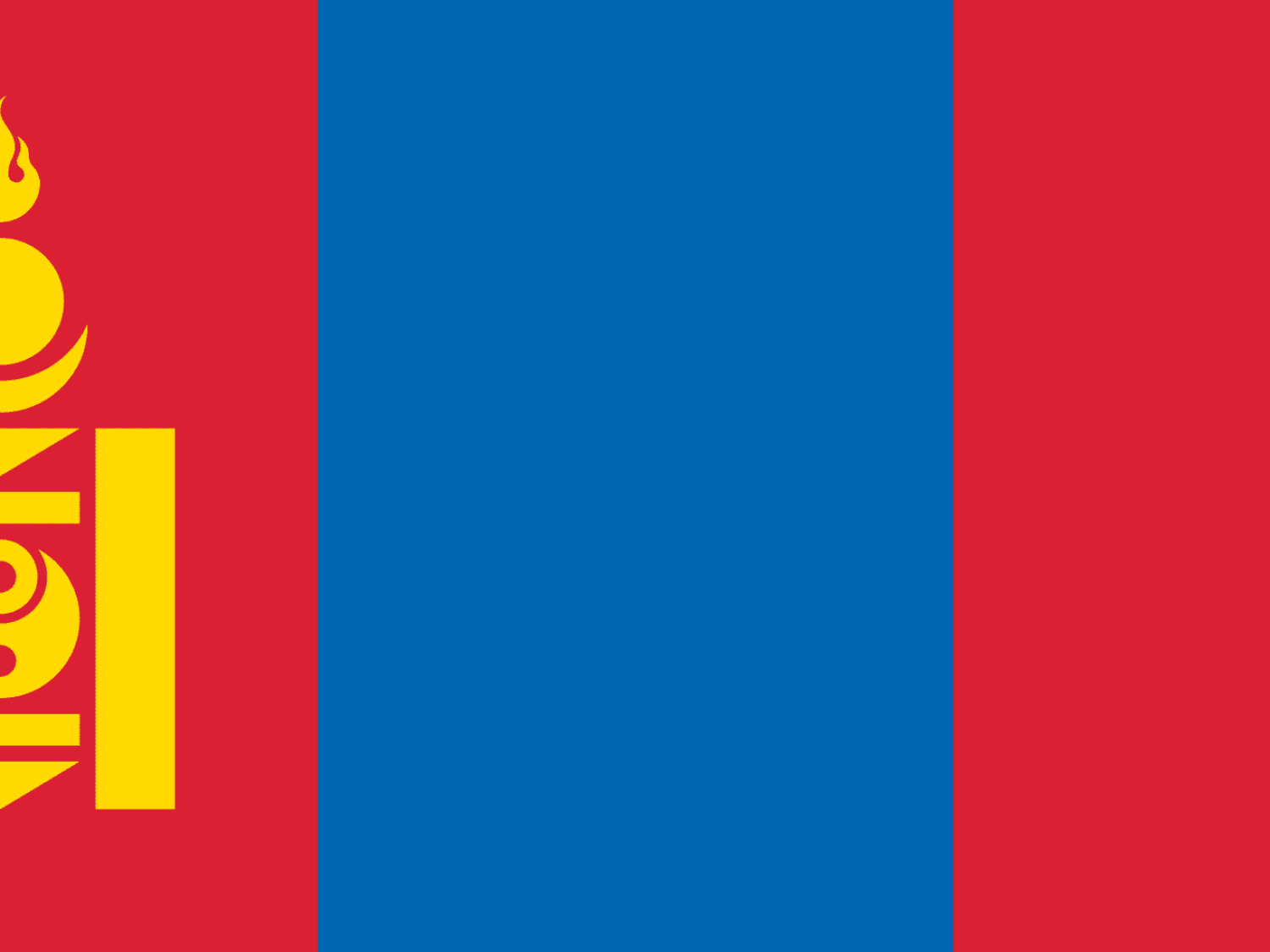Moving to Mongolia
Simply move better with reloqio
✔️ Get offers free of charge – No obligation, no worres.
✔️ Quality-tested partners – Reliable and experienced.
✔️ Selection in your region – Find the perfect offer and save up to 45%.

Overview
Introduction to Mongolia
Mongolia, a vast landlocked country in East Asia, is known for its stunning landscapes, from the Gobi Desert to the steppes and rugged mountains, as well as its rich nomadic culture. The capital city, Ulaanbaatar, is the political, economic, and cultural heart of the country, blending Soviet-era architecture with modern developments. Mongolia’s economy is heavily reliant on mining, but the country is also known for its vibrant cultural traditions and historical significance as the birthplace of Genghis Khan. However, Mongolia faces challenges such as harsh weather conditions, underdeveloped infrastructure, and a relatively low standard of living, which can present difficulties for expatriates.
Why Move to Mongolia
Moving to Mongolia offers the opportunity to experience a unique and adventurous lifestyle in a country with a deep cultural heritage and breathtaking natural beauty. For those interested in outdoor activities, Mongolia’s wide-open spaces provide endless opportunities for exploration, including horseback riding, trekking, and camping. The country’s growing mining industry also attracts professionals from around the world. However, expatriates should be prepared for the challenges of living in a remote and sparsely populated country, including limited access to goods and services, extreme weather, and a relatively high cost of living in urban areas, especially Ulaanbaatar.
Cost of Living in Mongolia
The cost of living in Mongolia is generally low compared to Western countries, but it can vary significantly depending on location and lifestyle. In Ulaanbaatar, housing costs can be relatively high, particularly for modern apartments in the city center. Groceries and dining out are affordable, but imported goods, including electronics and certain foods, can be expensive. Utilities, transportation, and basic services are also reasonably priced, although the quality can vary. Outside the capital, the cost of living is much lower, but expatriates may face limited access to modern amenities. Overall, while Mongolia offers a low cost of living, expatriates need to budget carefully, particularly for housing and imported goods.
Visa and Residency
Types of Visas
Mongolia offers several types of visas, including tourist, business, and work visas. The work visa is the most common visa for expatriates and requires sponsorship from a Mongolian employer. The application process involves submitting various documents, such as proof of employment, educational qualifications, and a valid passport. Business visas are available for those conducting short-term business activities. It’s important to apply for the correct visa type and ensure that all documentation is accurate and complete to avoid delays or complications. Tourist visas are easy to obtain for short visits, but they do not permit employment.
Requirements for Obtaining Residency
Obtaining residency in Mongolia typically begins with securing a work visa. Once in the country, expatriates can apply for a temporary residence permit, which is usually tied to their employment. The process involves submitting various documents, including proof of employment, housing arrangements, and a health check. Residency permits are generally valid for one year and can be renewed as long as the expatriate remains employed. Permanent residency is more challenging to obtain and usually requires several years of continuous residence in Mongolia, along with proof of financial stability and integration into the local community.
Renewing Residency
Renewing residency in Mongolia involves extending your work visa and residency permit. The renewal process typically requires submitting updated proof of employment and housing, along with any other relevant documents. It’s advisable to start the renewal process well before your current permit expires to avoid any legal issues. Employers often assist with the renewal process, but it’s crucial to stay informed about any changes in immigration laws and ensure all paperwork is submitted on time.
Finding Accommodation
Popular Neighborhoods in Mongolia
In Ulaanbaatar, popular neighborhoods for expatriates include Zaisan, Sukhbaatar District, and Khan-Uul District. Zaisan is known for its modern apartments, proximity to international schools, and views of the surrounding mountains. The Sukhbaatar District, located in the city center, offers convenient access to business centers, shopping, and entertainment. Khan-Uul District is more residential, with a quieter atmosphere and access to parks and outdoor activities. Housing in these areas can be expensive by local standards, but they offer the best amenities for expatriates. Outside of Ulaanbaatar, housing options are more limited, and the standard of living may be more basic.
Renting vs Buying Property
Renting is the most common option for expatriates in Mongolia, particularly for those on short- to medium-term assignments. Rental properties are available in Ulaanbaatar, with prices varying significantly based on location and quality. Leases typically require a security deposit and the first month’s rent in advance. Buying property in Mongolia is possible for foreigners, but the process can be complex and involves navigating local property laws and regulations. It is advisable to work with a reputable real estate agent and legal advisor if considering purchasing property in Mongolia, particularly because the property market is less developed compared to other countries.
Tips for Finding Accommodation
When searching for accommodation in Mongolia, consider factors such as proximity to work, access to public transportation, and availability of amenities like schools, healthcare, and shopping centers. Working with a local real estate agent can be helpful, especially for expatriates unfamiliar with the market. It’s important to inspect properties carefully before signing a lease, as the quality of housing can vary widely. Be prepared to negotiate rental terms, and ensure that all lease agreements are clear and legally sound. Given the limited availability of high-quality housing, it’s advisable to start your search early, particularly in Ulaanbaatar where demand is high.
Mongolia’s location in East Asia offers opportunities for travel and exploration in neighboring countries. For those interested in exploring the region, the cultural richness and historical sites of China, the vast landscapes of Russia, or the natural beauty of Kazakhstan are all within reach.
Settling In
Healthcare System in Mongolia
Mongolia’s healthcare system is developing, with both public and private options available. Public healthcare is accessible but often lacks modern equipment and resources, particularly outside of Ulaanbaatar. Many expatriates prefer private clinics, which offer higher standards of care, shorter waiting times, and sometimes English-speaking staff, but these can be expensive. It is essential to have comprehensive health insurance that covers private healthcare and potential medical evacuation, as specialized treatments may not be available in Mongolia. Given the country’s remote location and limited medical facilities, access to quality healthcare can be a significant concern, so it’s important to plan accordingly.
Education System in Mongolia
Mongolia offers a limited range of educational options for expatriate families. Public schools follow the Mongolian curriculum and teach primarily in Mongolian, which can be challenging for non-Mongolian-speaking children. Most expatriate families opt for international schools, which offer curricula based on British, American, or International Baccalaureate (IB) systems. These schools are primarily located in Ulaanbaatar and are known for their small class sizes and personalized attention, though fees can be high. Early application is recommended, as spaces in international schools can be limited, particularly in popular grades.
Cultural Etiquette and Customs
Mongolia is a country with a deep respect for tradition and a strong nomadic culture. Understanding and respecting local customs is important for expatriates. Hospitality is a key aspect of Mongolian culture, and it’s common to be invited to homes for meals, where showing appreciation for the food and hospitality is essential. Dress codes are generally informal but respectful, especially when visiting religious sites or rural areas. Building personal relationships is important in both social and business settings, and taking the time to understand local customs and the Mongolian language, even at a basic level, can greatly enhance your experience in Mongolia.
{filterable_table}
Ready for your move to Mongolia? Get free quotes now!
Enquire about moving offers here and get quick answers with cost estimates.
It only takes 2 minutes and you can save up to 45% on your move to Mongolia!
